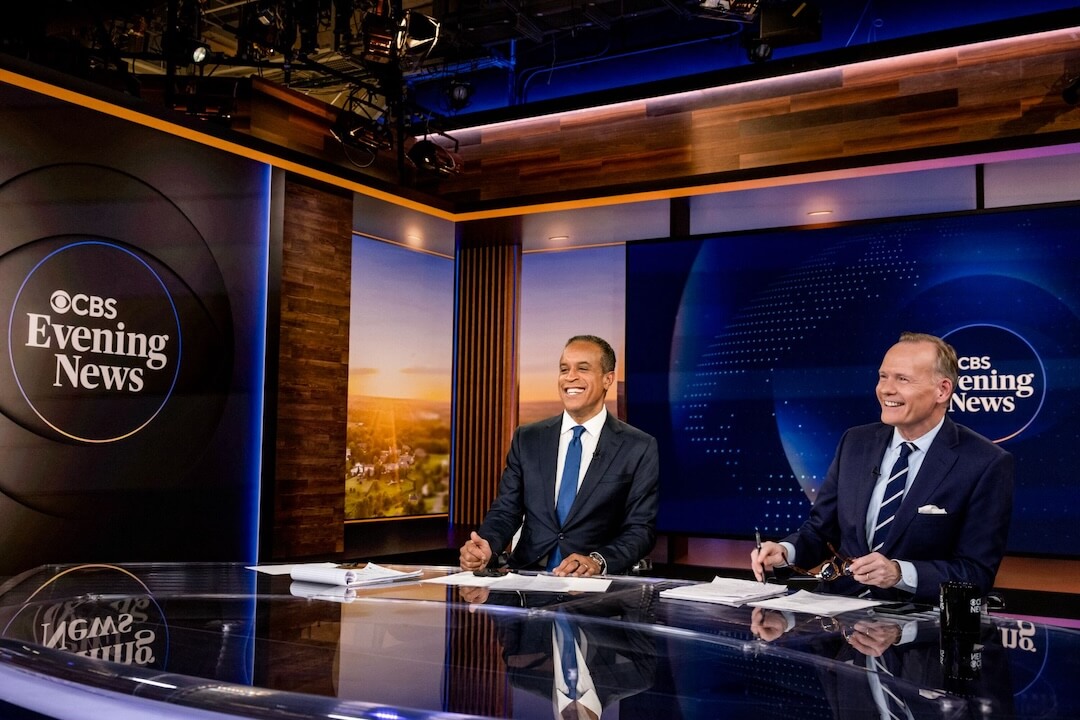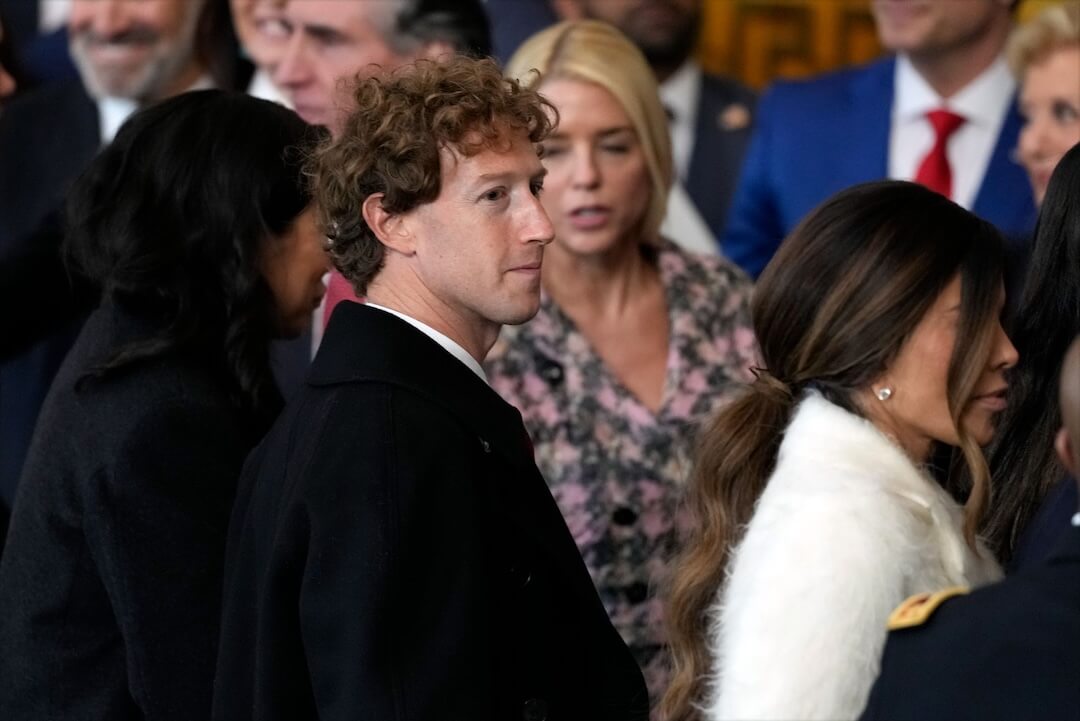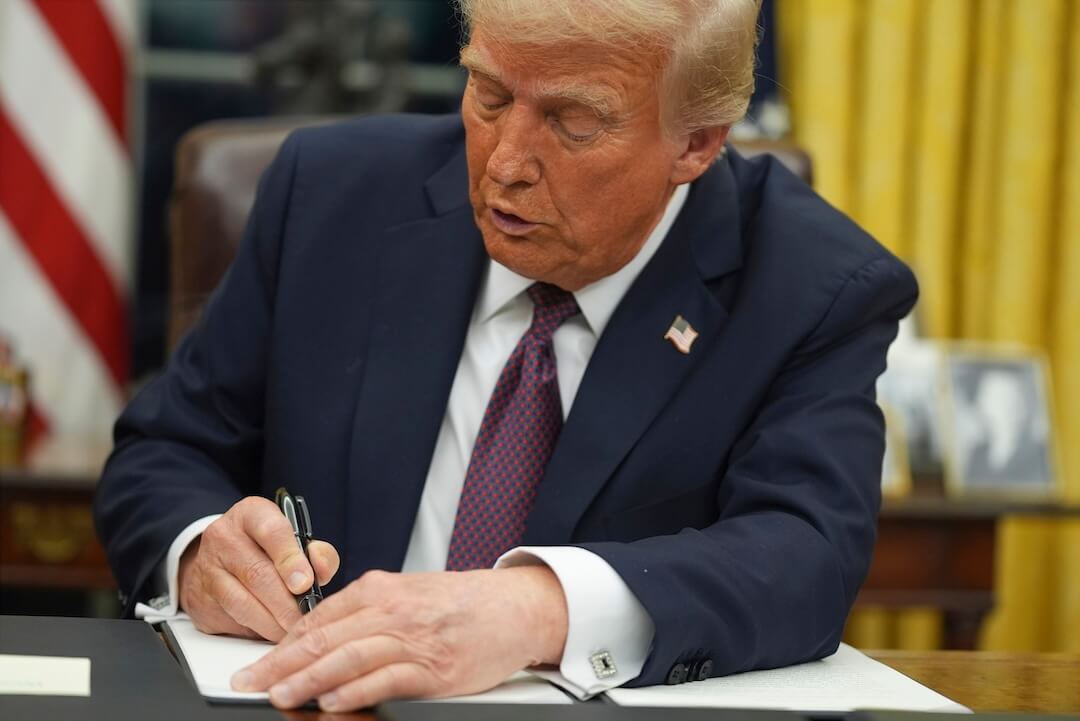Usually in the chaotic and busy world of media, stories don’t stay in the news cycle too long. Something happens. Everyone reacts. Then that news is replaced by some other news and we all move on to the next thing.
What feels like a blockbuster one day is an afterthought the next.
There are scandals. Gossipy relationships. Corporations are sold. Big names (think Tucker Carlson, Chris Cuomo and Don Lemon) come and go. There’s a buzz for a minute but then we all move on.
And the same thing will ultimately happen with this week’s seemingly stunning development that ABC News settled its defamation case with President-elect Donald Trump. The former and future president sued ABC News and on-air host George Stephanopoulos after the anchor said on air that Trump had been found “liable for rape” in a 2023 civil case. The jury found Trump was not liable for rape. However, the judge in the case later clarified that because of New York’s narrow legal definition of “rape,” the jury did not mean that Carroll “failed to prove that Mr. Trump ‘raped’ her as many people commonly understand the word ‘rape.’”
Because of that, it seemed as if ABC News had a pretty reasonable defense. Yet, the network chose to settle. The settlement includes ABC News donating $15 million to Trump’s eventual presidential library/museum.
In his strong reaction, The Washington Post’s Erik Wemple wrote, “Meaning: ABC News, a founding member of the mainstream media, will also serve as a founding member of the Donald J. Trump Presidential Library, or some such. That’s how big a chest-beating, lectern-pounding, crowd-pleasing victory the president-elect scored on an otherwise sleepy December weekend. ABC News will never live down this capitulation. Never.”
Never? That’s a long time, and Wemple might be right. This one does feel like it has some staying power with the narrative being a big-time news outlet backing down from Trump even though many legal experts said it had a strong case.
That leads us back to the one question that keeps being asked over and over again. Why? Why did ABC News settle?
The New York Times’ Brooks Barnes delves into that with a good behind-the-scenes piece: “Inside Disney’s Decision to Settle a Trump Defamation Suit.”
Barnes writes, “The company was concerned that a jury in Florida — a deep-red state that Mr. Trump carried by 13 points in the election last month — would side with the president-elect and potentially award him a sizable sum exceeding what it would cost to settle.”
There’s more.
Barnes added, “In the worst-case scenario, Disney concluded, fighting the case could lead to the Supreme Court and become a vehicle for Mr. Trump and his allies to overturn the landmark First Amendment decision in New York Times v. Sullivan. That 1964 ruling, as well as a handful of subsequent cases, made it much harder for public figures like Mr. Trump to win libel lawsuits. Disney’s legal team … ultimately decided that settling, even with the inevitable negative headlines, was the best outcome — that $16 million was a small price to pay for resolving a tricky case.”
Perhaps that is true. But that does not mean the settlement went over well inside ABC News. The Wall Street Journal’s Joe Flint and Isabella Simonetti wrote, “Disney’s Decision to Settle Trump Defamation Suit Prompts Backlash at ABC News.”
Flint and Simonetti wrote, “Many rank and file journalists and producers at ABC News are frustrated by the company’s decision to resolve the suit, rather than fight in court Trump’s claims against the network and its anchor George Stephanopoulos.”
The Journal, too, reported that ABC News worried about “press freedom writ large” if they lost in court, and that the deal was recommended by Disney general counsel Horacio Gutierrez and approved by Disney CEO Bob Iger.
However, the Journal story said, “Several ABC News staffers said it was a concerning precedent for a media company, and worry that the settlement sends a message that Disney is giving priority to its corporate interests and relationship with the White House over its own journalists.”
TikTok heads to the Supreme Court
TikTok is taking its case to the Supreme Court. And soon.
The court has fast-tracked TikTok’s request to hear the case, and arguments will be held Jan. 10.
At stake? Only the future of the social media giant and, perhaps, the First Amendment.
Earlier this year, U.S. lawmakers, citing national security concerns, passed a law with bipartisan support that said TikTok’s Chinese owner must sell TikTok by Jan. 19 or the social media app would be banned in the U.S. TikTok said this ban would violate the First Amendment.
The deadline for the sale is one day before Donald Trump takes office. Trump has been wishy-washy, at least publicly, on TikTok, but most recently seems to be receptive to the idea that it doesn’t go away. In a press conference this week, Trump said, “You know, I have a warm spot in my heart for TikTok because I won youth by 34 points and there are those that say that TikTok has something to do with it.”
CNN’s John Fritze and Devan Cole wrote, “Trump’s remarks have not gone unnoticed by TikTok’s attorneys, who told the Supreme Court in their emergency appeal earlier this week that blocking the law from taking effect is ‘appropriate’ because it would give ‘the incoming administration time to determine its position, as the president-elect and his advisors have voiced support for saving’ the app.”
The New York Times’ Adam Liptak and Sapna Maheshwari wrote, “The case will have far-reaching consequences. Since TikTok landed in the United States in 2018, it has become a cultural phenomenon that wields influence over nearly every aspect of American life. Users, especially younger generations, turn to it for news, entertainment and shopping, lured by its canny recommendation engine, which compiles short videos for users in a main feed. The app can quickly become addictive, as it gauges users’ interests, down to the number of seconds they spend on each video.”
However, the U.S. government has concerns that users’ data could be compromised. The Times wrote, “TikTok has been trying for years to assuage the government’s security concerns through a proposal known as Project Texas, which aims to separate sensitive U.S. user data from the rest of the company’s operations. But government officials have said the proposal is not sufficient.”
And now for more media news, tidbits and interesting links …
- This troubling piece is an absolute must-read. The Washington Post’s Erik Wemple with “How much abuse can a local newspaper reporter take?”
- The Athletic’s Katie Strang, one of the best reporters in the business, and Andrew Marchand with “Lee Fitting was ESPN’s ‘golden boy’ — then his alleged misconduct ‘finally caught up to him.’”
- Enthralling work from The New York Times: “2024 — The Year in Pictures.”
- Mediaite with their list of “Most Influential in News Media 2024.”
- Front Office Sports’ Michael McCarthy with “2024 Sports Media Winners and Losers: From Caitlin Clark to Venu Sports.”
- And here’s Awful Announcing’s Sean Keeley with “Best & worst sports media moments of the year.”
- From The Wall Street Journal’s William Power, Johnny Simon and Joe Fornabaio: “The Biggest News Stories of 2024.”
- Vanity Fair with their most read stories of 2024.
- Also in Vanity Fair, Natalie Korach with “Why the LA Times’ Owner Courted CNN’s Top Trump Defender.”
- My Poynter colleague, Kristen Hare, with “How one local newsroom celebrates Festivus.”
- The Wall Street Journal’s Jacqui Shine with “Want to Earn Six Figures as a Writer? Try Ghostwriting.”
- Be sure to check out Friday’s Poynter Report. It will be the final edition of 2024 and I will look back on the year in media, including naming a media personality of the year. See you tomorrow.
More resources for journalists
- Peak Producing: Elevate Your Newsroom, Accelerate Your Career
- Our training for public media executives application period ends Jan. 9.
- Transform Local Crime Coverage in your newsroom. Application period ends Jan. 17.
Have feedback or a tip? Email Poynter senior media writer Tom Jones at tjones@poynter.org.
The Poynter Report is our daily media newsletter. To have it delivered to your inbox Monday-Friday, sign up here.







